When Trello is not enough - Forecast
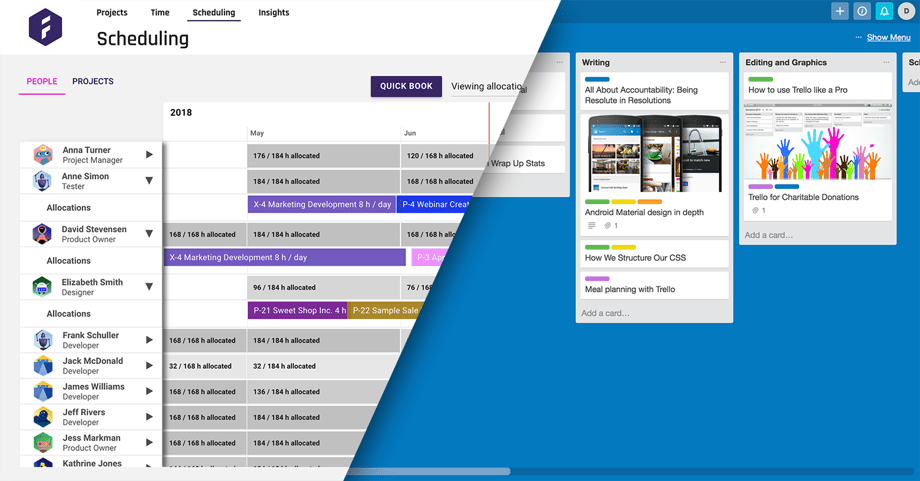
Where do you go when Trello is not enough? When the simplicity of Trello Boards is outgrowing you. When you need more control and insight into your projects, teams, and business performance. We believe the answer is Forecast.
Coming from Trello, you're most likely used to managing all of your tasks on a Kanban board. Likewise, you've most likely adopted the habit of calling those tasks, cards. Well, just keep that habit, because we do too. Tasks in Forecast are called Cards. And, you can manage those cards using the Kanban board, just like in Trello, but in Forecast we call it the Workflow.

Now, this is where the similarity ends. You needed something extra, right?
Well, in Forecast, before you get to the Workflow, you need to do the Scoping. Scoping is where you do the initial planning of your project. You brainstorm all the ideas and requirements you have. Then you move each card into milestones. Milestones have a set start- and end date, and is a way to break down your project into smaller manageable pieces.

Each card has a title, a main role, and a low- and high estimate of hours it is expected to take. As you add cards, you'll see that Forecast is automatically adding a 'Forecast' and a 'Price' to each card. This 'Forecast' is based on a continuously improved algorithm to estimate time. The 'Price' connects this more precise time estimate with the rate specified by you for each 'main role' within the project. In Forecast, team members have a 'main role' assigned to them, e.g. Designer or Marketing. This is used to schedule team members and create budgets for you.
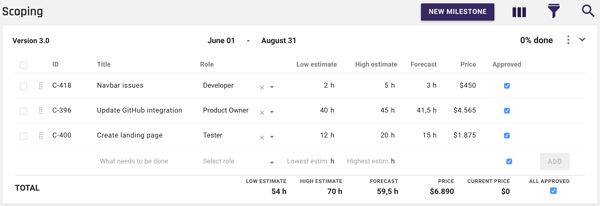
After Scoping, you can choose to run Sprints. Sprints are optional, but a great way to align the team's work on a regular basis. Sprints are milestones on a more granular level. Often a milestone has a months perspective, e.g. Version 3, while sprints have a days or weeks view, e.g. Version 2.3. Often sprints run in shorter cycles, e.g. 14 days, thereby the word "sprint". You have a meeting at the beginning of the next sprint, in this case every 2 weeks, to align and select the cards the team needs to work on next.
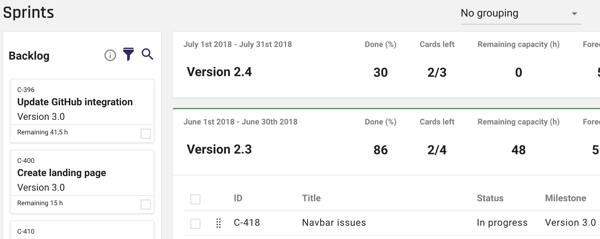
Following Scoping, and the optional Sprints, you'll arrive at the Workflow. Here, you should feel at home again. Workflow is the Kanban board you're used to with To-do, In progress, and Done columns. Workflow only shows the cards you're working on right now, as approved through Scoping and Sprints. This keeps your board untangled and to-the-point. You can add as many columns as you need, and name each individually - just like your Trello Boards.
On the Workflow, you'll find the Cards you created from your initial Scoping. Click a card to expand it. Here, you can add all the information related to the card. Description, labels, to-dos or subtasks, assign people to the card, register hours on the card, attach files, comment and mention other team members, and view the activity log. You may also have integration specific fields such as the one below with GitHub.
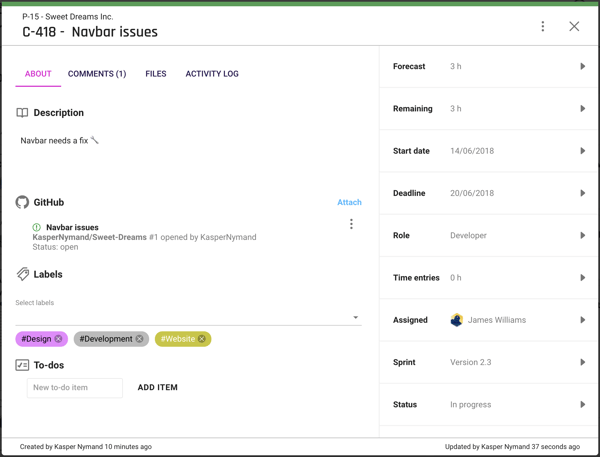
As you complete tasks, you'll be able to follow the financial development of the project through the Budget tab. The budget is automatically generated for you based on the hours registered on cards, and the rates specified for each role within the project. Depending on your project, you can set a fixed project price or keep it valuable, and add additional expense items if needed.
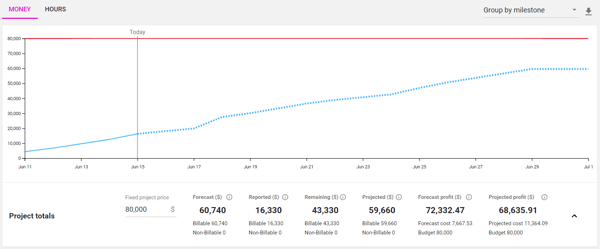
Now, if you step out of the project and into Scheduling, you'll now see a schedule across people and projects. Here, you can view and manage allocations of team members to projects. You can expand team members to see the cards each person is assigned to, and use the Quick Book feature to quickly find the right people to allocate to projects where needed.

Finally, managing a business, you need easy access to insightful data, tables, and graphs on the progress of projects and how the business is doing. Just like the budget, the insights are also automatically generated for you, in real-time. It's up to you whether you want reports on a specific project, the entire portfolio, the people on your team, or the organization overall. You simply select the insight components you want, and dig in.
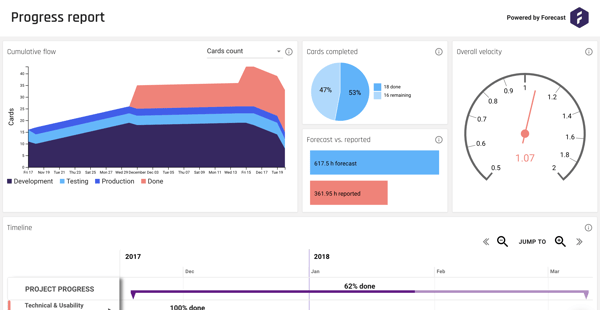
Want to learn more about this integration?
Find out more about how this integration can benefit you and your project work. Get started now with using Trello and Forecast.
You might like to read these articles on our blog..
Subscribe to the Forecast Newsletter
Get a monthly roundup of productivity tips & hacks delivered straight to your inbox

